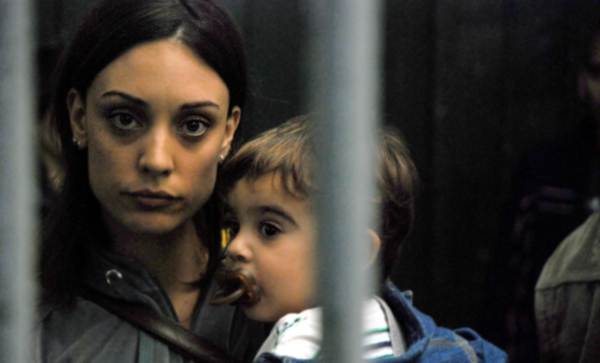|
Reviews of Recent Independent, Foreign, & Documentary Films in Theaters and DVD/Home Video

LION’S DEN It
took more than a year, but finally Lion’s Den—which premiered at
the 2008 Cannes Film Festival—opens in the States. It’s well worth the
wait. This is the fifth film from Argentina’s Pablo Trapero, a director
known for his focus on small-scale human dramas. Trapero conceived the
idea as he drove past a large prison with his son, who noticed the walls
had been painted pink. The unit housed mothers forced to raise their
children while incarcerated. One
particularly memorable scene involves the introduction of Marta (Laura
García), a mother of two who acts as Julia’s caretaker. The scene starts
in a tight shot with Julia, Marta, and several other inmates nude as
they shower together. One of the women harasses Julia, groping her and
making lewd comments. Marta comes to her rescue, and Julia manages to
leave before Marta and the harasser begin a shoving match. As tensions
escalate, the camera pulls back to a wide shot, and we see the two
women pulling each other’s hair, writhing on the floor kicking and
screaming. It’s almost a spectacle, a twisted mix of campy prison film
and mud wrestling. But the sight is so damn unerotic and uncomfortable
that its absurdity doesn’t override the dramatic weight. Simply put,
it’s quite a scene.
But ultimately, Trapero’s not interested in judging her
character. The social conditions make such judgments almost irrelevant,
and ultimately, we’re on Julia’s side because she is at odds with such a
negligent, cruelly bureaucratic system. It’s to Trapero’s extreme credit
that he centers his attention on someone as pedestrian as Julia. It
might also be argued that she’s just a cipher, a vehicle to ignite in
the audience a very deep-seated, innate passion for basic justice. Rich Zwelling
|

